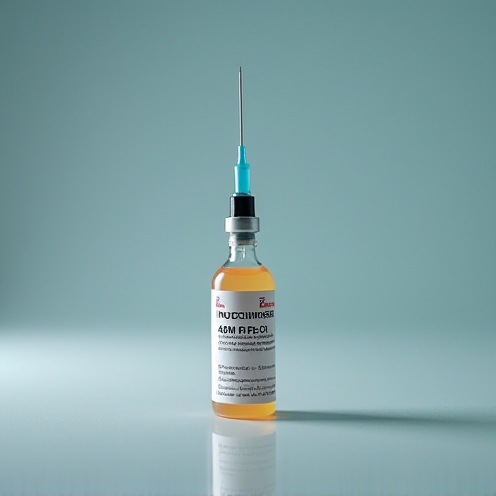Depo-Provera Injection
Product Info
| Prescription required | Yes |
| Marketer | Pfizer Ltd |
| Active Ingredient | Medroxyprogesterone acetate (150mg/ml) |
| Storage | Store below 25°C |
| Chemical Class | Gluco/Mineralocorticoids, Progestogins Derivatives |
| Habit Forming | No |
| Therapeutic Class | GYNAECOLOGICAL |
| Action Class | Progestins (First generation) |
| User Rating | 4.2 |
| User Reviews | 667 |
FAQ


















Depo-Provera Injection Reviews
Depo-Provera is administered only by or under the supervision of doctor. It should be taken as your doctor advice. Your doctor will decide how much you need to take and for how much time. You should take this injection for as long as it is prescribed for you.
The most common side effects of this medicine include headache, dizziness, abdominal pain, nervousness, weight gain, and breast tenderness. If any of these bothers you, let your doctor know. There may be ways of reducing or preventing them. It may also cause irregular menstrual cycle, spotting or your menstrual bleeds to stop altogether. Inform your doctor if you get heavy or prolonged bleeding.
Before taking this medicine, you must let your doctor know if you ever had any problems like history of blood clots, stroke, heart attack, liver, or bleeding problems. Your doctor should also know about all other medicines you are taking as many of these may make this medicine less effective or change the way it works. You must not take it if you are pregnant.
How Depo-Provera Injection Works
How to Use Depo-Provera Injection
Benefits of Depo-Provera Injection
- In Treatment of Endometriosis: Depo-Provera contains progesterone, a female hormone that is important in the regulation of ovulation and menstruation. It is used to cause menstrual periods in women who have not reached menopause but are not having periods due to a lack of natural progesterone in the body. You should use the medicine as prescribed for it to be effective. Avoid any stress and follow your doctor’s instructions carefully. Improving weight and nutrition may be recommended in females with eating disorders or malnutrition to get the maximum benefit from Depo-Provera.
- In Treatment of Abnormal uterine bleeding: Depo-Provera is a synthetic progestin that replicates the effect of a natural female hormone called progesterone. It slows the growth of the lining of the womb before menstruation, which reduces the bleeding during menstruation. If heavy periods become such a problem that they interfere with your everyday life, then try taking things a little easier on those days. Some women find that relaxation techniques or yoga help them feel more relaxed and reduce stress. Getting a lot of exercise can also help.
Uses of Depo-Provera Injection
- Treatment of Endometriosis
- Treatment of Abnormal uterine bleeding
Depo-Provera Injection Side Effects

Safety Tips
Quick Tips
- Fertility does return once the injections are stopped, but the time varies for each woman.
- The injection cannot be reversed once it has been given and its effects last for at least 12 weeks.
- Depo-Provera is used for preventing pregnancy (contraception).
- It may cause irregular bleeding, spotting or your menstrual bleeds to stop altogether. Inform your doctor if you get heavy or prolonged bleeding.
- To avoid the risk of becoming pregnant you must take the injection once after every 12 weeks.
- It is usually given into the muscle of the buttock or upper arm.
- Do not take Depo-Provera if you're pregnant or breastfeeding, or have a history of blood clots, stroke, heart attack, liver problems, or bleeding problems.
- Long term use can cause a loss of bone mineral density and increase the risk of weak bones and osteoporosis.
References
- Briggs GG, Freeman RK, editors. A Reference Guide to Fetal and Neonatal Risk: Drugs in Pregnancy and Lactation. 10th ed. Philadelphia, PA: Wolters Kluwer Health; 2015. pp. 850-54.
- Chaves RG, Lamounier JA. Breastfeeding and maternal medications. J Pediatr (Rio J). 2004;80(5 Suppl):S189-S198.
- Medroxyprogesterone Acetate injectable suspension [Drug Label]. Kalamazoo, MI: Pharmacia & Upjohn Company; 2022.
- Medroxyprogesterone acetate. Pfizer: Puurs, Belgium: 2018.
